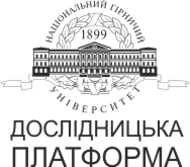№80-30
Diagnostics of the technical condition of the tailing dam of the Vilnogirsky ore mining and metallurgical plant by geophysical methods and measures to increase the level of environmentally safe operation
L. Rudakov1, D. Pikarenia2, O. Orlinska2, H. Hapich1
1Dnipro State Agrarian and Economic University, Dnipro, Ukraine
2Technical University ‘Metinvest Polytechnic’, Zaporizhzhya, Ukraine
Coll.res.pap.nat.min.univ. 2025, 80:324–335
Full text (PDF)
https://doi.org/10.33271/crpnmu/80.324
ABSTRACT
Purpose. To substantiate the possibility and feasibility of using the geophysical method of the natural pulsed electromagnetic field of the Earth (NPEMFE) to diagnose the technical condition of the soil dam of the Vilnohirsk Mining and Metallurgical Plant and to develop measures to improve the level of environmental safety of the tailings dump's further operation.
The methods. Modern standardised research methods were used, including field measurements and analytical interpretation of geophysical data. The paper uses the data from the results of observations of the embedded control and measuring equipment (piezometers, geodetic marks) located in the body of the hydraulic structure.
Findings. Visual inspections and data from control and measuring equipment have a significant correlation with the results of studies of the technical condition of the soil dam using the geophysical method of NPEMFE. Based on the resulting data, various options for technical solutions and measures to improve the reliability and safety of the soil dam operation have been developed.
The originality. Scientific and practical substantiation of the possibility of applying the NPEMFE method to identify areas of increased filtration, zones of compaction and potential formation of detachment cracks and shear planes in the body of the tailings dam, which do not show external signs of technical condition. Improvement of the methodology for monitoring and instrumental studies of the reliable and safe operation of the tailing dump allows developing reasonable measures to improve the level of environmental and operational safety of the enclosing dams.
Practical implementation. The application and implementation of the NPEMFE geophysical method in the system of diagnostic monitoring observations of the technical condition of the soil dam significantly increases the reliability and informativeness of the data obtained on the stress-strain state of the dam, makes it possible to track changes and identify areas of increased filtration and watering. This approach makes it possible to predict the state of the structure at different levels of operation, as well as to develop both operational and long-term measures to improve environmental and technical safety, especially in the context of a constant increase in the height of protective dams and an increase in the useful capacity of tailings ponds.
Keywords: tailing dump, soil dam, geophysical methods, environmental safety.
References
1. Nikolaieva, I.O. (2017). Ekolohichnyi audyt promyslovykh khvostoskhovyshch iz zastosuvanniam kontrolnykh spyskiv yak peredumova pidvyshchennia yikh ekolohichnoi bezpeky. dys. … na zdobuttia kand. tekhn.: 21.06.01. Derzhavna ekolohichna akademiia pisliadyplomnoi osvity ta upravlinnia.
2. Rudakov, L. M. (2023). Environmental and operational safety of tailing storage facilities: analysis of accidents, causes and technical state diagnostic methods. Environmental Safety and Natural Resources, 46(2), 66–84. https://doi.org/10.32347/2411-4049.2023.2.66-84
3. Khvostoskhovyshcha i shlamonakopychuvachi: DBN V.2.4.-5:2012. K.: Minrehionbud Ukrainy.
4. Williams, DJ (2021). Lessons from tailings dam failures – where to go from here? Minerals, 11(8), 853. https://doi.org/10.3390/min11080853
5. Khvostoskhovyshche v b. Skazhena. Naroshchuvannia osnovnoi damby do vidmitky 133,00 m. Rekonstruktsiia. Robochyi proekt. (2004). Derzhavnyi naukovo-doslidnyi ta proektno-vyshukuvalnyi instytut «UkrNDIvodokanalproekt».
7. Kuzmenko, E., Bagriy, S., Artym, V., Artym, I., Dzoba, U., & Kamaeva, I. (2021). Distribution of mechanical stress and its relationship to the natural pulsing electromagnetic field in complex rock masses. 15th International Conference Monitoring of Geological Processes and Ecological Condition of the Environment. https://doi.org/10.3997/2214-4609.20215k2079
8. Vyshukuvannia, proektuvannia i terytorialna diialnist. Vyshukuvannia. Inzhenerni vyshukuvannia dlia budivnytstva: DBN A.2.1-1:2014. (2014). Minrehionbud Ukrainy, 2014.
9. Kuzmenko, E., Bahrii, S., & Dzoba, U. (2019). The depth range of the Earth’snatural pulse electromagneticfield (or ENPEMF). Journal of Geology, Geography and Geoecology, 27(3), 466–477. https://doi.org/https://doi.org/10.15421/111870
10. Chushkina, I. V., Pikarenia, D. S., Orlinska, O. V., & Maksymova, N. M. (2020). Experimental substantiation of the NPEMFE geophysical method to solve engineering and geological problems. Visnyk of V. N. Karazin Kharkiv National University, Series “Geology. Geography. Ecology”, (51), 109–123. https://doi.org/10.26565/2410-7360-2019-51-08
11. Hao, G.-C., Bai, Y.-X., Liu, H., Zhao, J., & Zeng, Z.-X. (2018). The Earth’s natural pulse electromagnetic fields for earthquake time-frequency characteristics: Insights from the EEMD-WVD method. Island Arc, 27(4). https://doi.org/10.1111/iar.12256
12. Pikarenia, D.S., & Orlinska, O.V. (2009). Dosvid zastosuvannia metodu pryrodnoho impulsnoho elektromahnitnoho polia Zemli (PIEMPZ) dlia vyrishennia inzhenerno-heolohichnykh zadach. Vydavnytsto «SVIDLER».
13. Pikarenia, D.S., Orlinska, O.V., Zberovskyi, A.V., & Laznikov, A.M. (2012). Doslidzhennia mitsnisnykh ta filtratsiinykh vlastyvostei hidrotekhnichnoi sporudy u baltsi Skazhena Vilnohirskoho HMK. Zbirnyk naukovykh prats NHU, 37, 310–315.
14. Rudakov, L.M., Hapich, H.V., Orlinska, O.V., Pikarenia, D.S., Kovalenko, V.V., Chushkina, I.V., & Zaporozhchenko, V. Y. (2020). Problems of technical exploitation and ecological safety of hydrotechnical facilities of Irrigation Systems. Journal of Geology, Geography and Geoecology, 29(4), 776–788. https://doi.org/10.15421/112070
15. Hapich, H, Orlinska, O., Pikarenia, D., Chushkina, I., Pavlychenko, A., & Roubík, H. (2023). Prospective methods for determining water losses from irrigation systems to ensure food and water security of Ukraine. Naukovyi Visnyk Natsionalnoho Hirnychoho Universytetu, (2), 154–160. https://doi.org/10.33271/nvngu/2023-2/154
16. Orlinska, O., Pikarenia, D., Chushkina, I., Maksymova, N., Нapich, H., Rudakov, L., Roubík, H., & Rudakov, D. (2022). Features of water seepage from the retention basins of irrigation systems with different geological structures. Industrial, Mechanical And Electrical Engineering. https://doi.org/10.1063/5.0109330
17. Dudlia, M.A., & Sadovenko, I.O. (2007). Tekhnika ta tekhnolohiia burinnia hidroheolohichnykh sverdlovyn: Pidruchnyk (Za red. akad. NAN Ukrainy H.H. Pivniaka) Natsionalnyi hirnychyi universytet.




